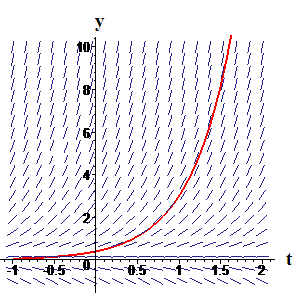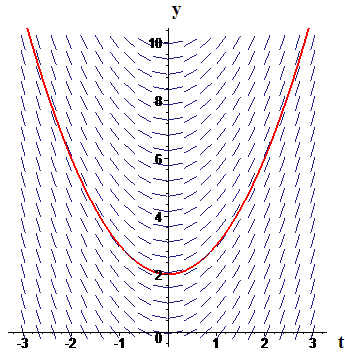Chapter 3
Initial Value Problems
3.1 Differential Equations and Initial Values
3.1.3 Initial Value Problems
For problems in which the independent variable is time `t`, it is often convenient to specify the initial value at , but that is not required — as you just saw in Activity 4.
We have seen several times now that an initial value problem has a unique solution. This is true for most differential equations — in particular, it is true for all the differential equations we consider in this course. For reference, we record this as a statement we assume to be true.
| Fundamental Assumption In this text, we assume that every initial value problem has a unique solution. |
If we are looking for a formula for the solution of an initial value problem, our approach will be to
- describe all solutions of the differential equation and
- determine the unique one that satisfies the initial condition.
Example 3
Solve the initial value problem
Solution We know from Activity 2 that the solutions of the differential equation are functions of the form
We want to select the constant `C` so that
This means that we must have
or
Therefore
In Figure 3 we show the slope field for the differential equation
and the particular solution for which .

Example 4
Solve the initial value problem
Solution We know from Activity 3 that the solutions of the differential equation are functions of the form
In order to satisfy the condition
we must have
So,
Thus, the solution of the initial value problem is the function
In Figure 4 we show the slope field for the differential equation and the particular solution for which .



